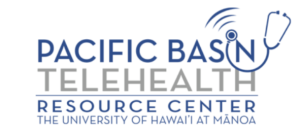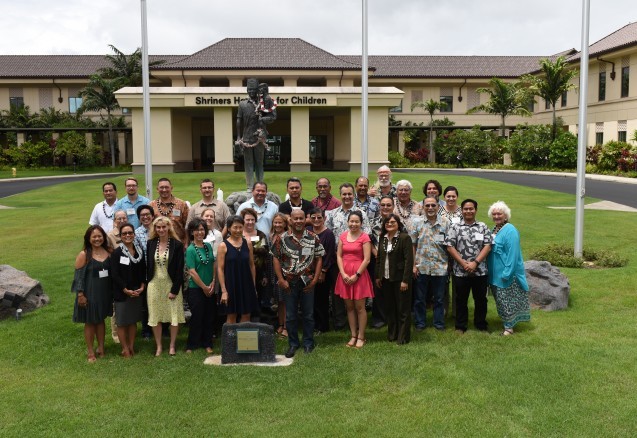The U.S. Affiliated Pacific Islands (USAPI) Telehealth Champion Building and Planning Workshop was held in Honolulu, Hawaiʻi from September 13 through 15, 2016. Thirty-four individuals from the Pacific Region attended the workshop, including health administrators and health care providers from the U.S. territories of Guam, American Samoa, and the Commonwealth of the Northern Mariana Islands; and the Freely Associated States of the Federated States of Micronesia; the Republic of the Marshall Islands; and the Republic of Palau. The workshop was partially funded by the Office of the Assistant Secretary for Planning and Evaluation (ASPE) of the U.S. Department of Health and Human Services (HHS) through a contract with Mathematica Policy Research, and was facilitated by the Pacific Basin Telehealth Resource Center of the University of Hawaiʻi at Mānoa. The primary goal of the workshop was to bring together individuals from the Pacific Region to discuss the current state of telehealth infrastructure including healthcare needs, and to brainstorm solutions to current challenges regarding telehealth. The workshop was organized into four separate sections, with the first being an introduction to telehealth, followed by a section that included presentations on the current needs and challenges in each separate Pacific Island jurisdiction. The next section discussed the potential opportunities to move forward and the final section was an opportunity to talk about prioritizing activities and needs.
The introduction to telehealth included presentations from some notable organizations within the Pacific. These organizations included the Hawaiʻi Telestroke Network, Aloha Kidney, the Alaskan Community Health Aide training program, the VA Pacific Islands Health Care System’s telemedicine program, and the Guam Northern and Southern Community Health Centers (CHCs), which has established a telehealth program with the Good Samaritan Hospital in Los Angeles. After the introductions and presentations were complete, each jurisdiction described their own unique telehealth challenges and needs, which allowed participants to identify common themes across all of the jurisdictions. These themes included: small populations, lack of on-island specialty care, high off-island medical referrals and associated costs, high telecommunication costs and reliability issues, limited access to VA services in their home islands, and data collection issues.
When discussing the way forward, participants felt that infrastructure, including bandwidth was fundamental and a priority issue. A main concern is the high cost of telecommunications in the region. One suggestion is to establish local telehealth interest groups which include a representative from the telecommunication providers to increase awareness of the importance of affordable bandwidth to the Nation’s overall health care and economic well-being. Another area that was identified as needing improvement was Health IT and Health Information Exchange. Some suggestions for how to improve in this area was to facilitate access to the Direct Secure Messaging System that is facilitated by a PBTRC/PIER partnership and to create training programs to enhance professional skills. Participants also highlighted the need to develop and implement policies and procedures for telehealth at the institutional level. They felt that this could be achieved by raising awareness of the value of telehealth and developing local telehealth interest groups. Finally, participants felt that telehealth services could be improved and utilized for distance learning, care management, and workforce development. If telehealth were used for training community health aides for example, the workforce on the Pacific Islands could be strengthened significantly. Furthermore, utilizing telehealth for off-island consultations could help to reduce the need for expensive off-island flights for patients who need specialty care. Overall, the 2016 USAPI Telehealth Champion Building and Planning Workshop was a success, and the partnerships and collaboration gained will continue to push telehealth forward in this region for years to come.

